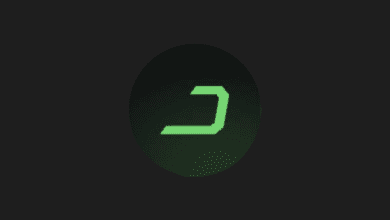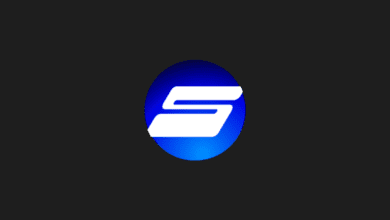Flow (FLOW) Price, Charts & Market Capitalization
Flow (FLOW) Graphics
Flow (FLOW) is a fast, decentralized, and developer-friendly Layer 1 blockchain designed from the ground up for consumer-facing applications, particularly in gaming, NFTs, and the metaverse. Its core mission is to create a scalable and user-friendly platform that enables developers to build and launch high-quality digital experiences without the challenges of high fees and network congestion. By employing a unique multi-node architecture, Flow provides a seamless and scalable environment that has attracted major brands and developers. The entire ecosystem’s operations, incentives, and governance are powered by its native FLOW token.
📊 Flow (FLOW) Quick Facts
| Feature | Details |
| Token Name | Flow (FLOW) |
| Blockchain | Flow (Independent Layer 1) |
| Category | Layer 1, Gaming, NFT, Metaverse, Utility Token, Governance Token |
| Circulating Supply | Approximately 1.6 Billion FLOW (as of August 6, 2025 – this is dynamic and should be verified from current, reliable sources like CoinMarketCap or CoinGecko) |
| Total Supply | 1.5 Billion FLOW (with new issuance as staking rewards) |
| Max Supply | None (inflationary, but with a capped annual rate) |
| Consensus Mechanism | Proof-of-Stake (PoS) |
| Use Cases | Staking, transaction fees, governance, and a medium of exchange. |
| Official Website | flow.com (Always verify the official website from trusted crypto data aggregators to avoid unofficial or scam sites.) |
🔍 What is Flow?
Many Layer 1 blockchains face a “trilemma” of scalability, security, and decentralization. Projects often have to compromise on one of these to optimize the others. Flow was designed to solve this with a unique architectural approach:
- Multi-Node Architecture: Flow uses a pipeline-like architecture where different types of nodes perform specific tasks. This includes Collection Nodes (for data collection), Execution Nodes (for computation), Verification Nodes (for security), and Consensus Nodes (for finality). This specialization allows the network to process transactions in parallel, achieving massive scalability without sharding.
- Developer-Friendly Language (Cadence): Flow uses a new, resource-oriented programming language called Cadence. This language is specifically designed for writing secure and user-friendly smart contracts for digital assets (NFTs). Its readability and focus on security make it easier for developers to build on Flow.
- Low Fees and No Congestion: The high throughput and efficient architecture of Flow ensure that transaction fees remain low and predictable, even during periods of high network activity. This is crucial for mass adoption and for user-friendly applications like games.
- Built for Consumer Experiences: Flow was created by Dapper Labs, the team behind CryptoKitties and NBA Top Shot. This foundation means the network is specifically optimized for applications with high user interaction, such as games, social media, and collectibles.
- Integrated Wallets and Marketplaces: Flow has a robust ecosystem of integrated wallets and marketplaces, making it easy for users to buy, sell, and trade NFTs and other digital assets.
The FLOW token is the central utility and governance token that fuels this entire ecosystem.
✨ Key Features and Ecosystem Components
Flow, powered by the FLOW token, offers several key features:
- Massive Scalability: A multi-node architecture enables high transaction throughput without sharding.
- Developer-Friendly: The Cadence programming language simplifies the creation of secure smart contracts.
- Low Transaction Fees: An efficient network ensures affordable transactions for everyone.
- Strong Brand Partnerships: Has attracted major brands like NBA, NFL, and UFC.
- Staking Rewards: Allows FLOW holders to earn passive income.
- Decentralized Governance: Empowers FLOW holders to influence the network’s future.
- Inflationary Model: An uncapped supply with a fixed annual inflation rate to incentivize staking and network security.
📈 FLOW Tokenomics
The FLOW token is the native utility and governance token of the Flow blockchain. Its design is focused on driving the network’s growth, securing it, and rewarding participants:
- Staking for Validators: Node operators must stake FLOW tokens to secure the network and participate in its consensus mechanism. They are rewarded with newly issued FLOW tokens for their service.
- Transaction Fees: FLOW is used to pay for all transaction fees on the Flow blockchain. This includes deploying smart contracts, interacting with dApps, and transferring assets. This utility creates direct demand for the token.
- Governance: FLOW token holders possess voting rights within the Flow decentralized governance model. They can propose and vote on key decisions, such as protocol upgrades, network parameters, and treasury fund allocation.
- Medium of Exchange: FLOW serves as the native currency for all dApps and marketplaces built on the Flow blockchain. Users can use FLOW to buy NFTs, pay for in-game items, and interact with various services.
- Inflationary Supply: The total supply is not capped. New FLOW tokens are issued to reward validators and ensure the security of the network. However, the annual inflation rate is designed to be capped and predictable.
🚀 Use Cases & Applications
- Blockchain Gaming: The foundational platform for popular games like NBA Top Shot, NFL All Day, and others.
- NFTs and Collectibles: A leading blockchain for minting, trading, and showcasing digital collectibles.
- Decentralized Applications (dApps): A scalable environment for building social media, DeFi, and other consumer-facing applications.
- Metaverse and Digital Worlds: Provides the infrastructure for digital assets and interactions within virtual worlds.
✅ Pros and ❌ Cons
Pros
- Massive Scalability: Its unique architecture solves the trilemma of scalability without sharding.
- Developer-Focused: The Cadence language and robust toolset make it easy to build on Flow.
- Major Brand Partnerships: The platform has secured partnerships with some of the world’s biggest brands.
- Low Fees: Low transaction fees make it ideal for consumer-facing applications.
- High-Growth Sector: Positions itself in the booming Web3 gaming and NFT markets.
Cons
- Competition: Faces strong competition from other Layer 1 blockchains like Solana and Polygon.
- Centralization Concerns: Some critics argue that the multi-node architecture, with its specialized nodes, can lead to a degree of centralization.
- Inflationary Supply: An uncapped token supply can be a concern for long-term investors.
- Token Price Volatility: The value of FLOW, like other cryptocurrencies, is subject to significant market fluctuations.
🛒 How to Buy & Store FLOW
- Select an Exchange: Flow (FLOW) is available on virtually all major centralized exchanges (CEXs) such as Binance, Coinbase, Kraken, and others. It’s also available on some decentralized exchanges (DEXs) that support Flow.
- Set Up an Account: If using a CEX, register and complete the KYC (Know Your Customer) verification process.
- Deposit Funds: Deposit fiat currency (USD, EUR, etc.) or other cryptocurrencies (like USDT or ETH) into your exchange account.
- Purchase FLOW: Navigate to the trading pair for FLOW (e.g., FLOW/USDT or FLOW/ETH) and place a buy order.
- Secure Storage: For long-term security and to participate in staking or governance, it’s highly recommended to withdraw your FLOW tokens from the exchange and store them in a secure non-custodial wallet that supports the Flow blockchain.
- Blocto Wallet: A popular and user-friendly wallet for the Flow ecosystem.
- Ledger Wallet: A hardware wallet that offers the highest level of security for storing FLOW tokens.
- Dapper Wallet: The official wallet from the creators of Flow, designed for seamless integration with dApps.
🔮 Future Roadmap
Flow’s roadmap is focused on continuously enhancing its platform, expanding its ecosystem, and driving wider adoption:
- Protocol Upgrades: Improving the core multi-node architecture for even greater efficiency and decentralization.
- Developer Ecosystem Growth: Providing more comprehensive SDKs, documentation, and support for developers.
- Strategic Partnerships: Collaborating with more major brands, game studios, and technology companies.
- Decentralized Governance: Fully implementing a DAO structure to give FLOW holders more control over the network’s future.
- Community Building: Fostering a global community of developers and users to build a vibrant ecosystem.
🏁 Conclusion
Flow (FLOW) is a purpose-built blockchain that has carved out a strong niche in the Web3 gaming and NFT sectors. By solving critical scalability issues with its unique architecture and providing a developer-friendly platform, it has become the go-to choice for major brands seeking to enter the decentralized space. The FLOW token is the central component of this ecosystem, enabling network security, powering all transactions, and empowering decentralized governance. As the world of digital collectibles and blockchain gaming continues to expand, Flow is well-positioned to be a foundational infrastructure, powering the next generation of digital experiences.
About Flow (FLOW)
| Contract | |
| Website | flow.com |
| Explorers | Etherscan |
| Community | |
| API idd | flow |










